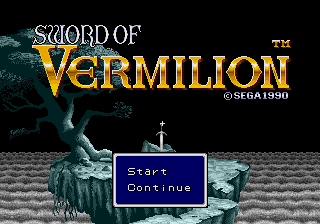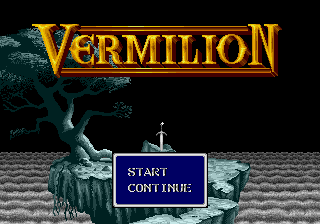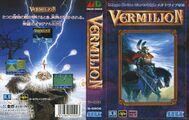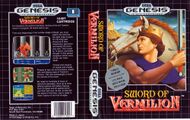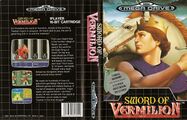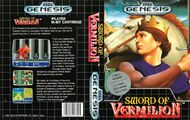Sword of Vermilion
From Sega Retro
| ||||||||||||||||||||||||||||||||||||||||||||||||||||||||||||||||||||||||||||||||||||||||||||||||||||||||||||||||||||||||||||||||||||||||||||||||||||||||||||||||||||||||||
| Sword of Vermilion | ||||||||||||||||||||||||||||||||||||||||||||||||||||||||||||||||||||||||||||||||||||||||||||||||||||||||||||||||||||||||||||||||||||||||||||||||||||||||||||||||||||||||||
|---|---|---|---|---|---|---|---|---|---|---|---|---|---|---|---|---|---|---|---|---|---|---|---|---|---|---|---|---|---|---|---|---|---|---|---|---|---|---|---|---|---|---|---|---|---|---|---|---|---|---|---|---|---|---|---|---|---|---|---|---|---|---|---|---|---|---|---|---|---|---|---|---|---|---|---|---|---|---|---|---|---|---|---|---|---|---|---|---|---|---|---|---|---|---|---|---|---|---|---|---|---|---|---|---|---|---|---|---|---|---|---|---|---|---|---|---|---|---|---|---|---|---|---|---|---|---|---|---|---|---|---|---|---|---|---|---|---|---|---|---|---|---|---|---|---|---|---|---|---|---|---|---|---|---|---|---|---|---|---|---|---|---|---|---|---|---|---|---|---|---|
| System(s): Sega Mega Drive, Virtual Console, Steam, Nintendo Switch Online | ||||||||||||||||||||||||||||||||||||||||||||||||||||||||||||||||||||||||||||||||||||||||||||||||||||||||||||||||||||||||||||||||||||||||||||||||||||||||||||||||||||||||||
| Publisher: Sega Enterprises, Ltd. (JP, EU) Sega of America (US) Sega Corporation Sega Corporation | ||||||||||||||||||||||||||||||||||||||||||||||||||||||||||||||||||||||||||||||||||||||||||||||||||||||||||||||||||||||||||||||||||||||||||||||||||||||||||||||||||||||||||
| Developer: Sega R&D 8[1] M2 | ||||||||||||||||||||||||||||||||||||||||||||||||||||||||||||||||||||||||||||||||||||||||||||||||||||||||||||||||||||||||||||||||||||||||||||||||||||||||||||||||||||||||||
| Genre: RPG[2] | ||||||||||||||||||||||||||||||||||||||||||||||||||||||||||||||||||||||||||||||||||||||||||||||||||||||||||||||||||||||||||||||||||||||||||||||||||||||||||||||||||||||||||
| Number of players: 1 | ||||||||||||||||||||||||||||||||||||||||||||||||||||||||||||||||||||||||||||||||||||||||||||||||||||||||||||||||||||||||||||||||||||||||||||||||||||||||||||||||||||||||||
|
Sword of Vermilion, known as Vermilion (ヴァーミリオン) in Japan, is an action RPG game developed by Sega R&D 8 under Yu Suzuki and released for the Sega Mega Drive in late 1989. It was brought to English-speaking nations in 1991 where it shipped with a 106-page hint book.
Contents
Plot
Erik V, king of Excalabria, is overthrown by Tsarkon, king of Cartahena. Before he dies, Erik tells his most trusted servant, Blade, to take his infant son and the family heirloom, the Ring of Wisdom, and escape, raising the baby as his own. Eighteen years later, Tsarkon's forces approach Wyclif, the town where Blade took the baby, requiring Blade to reveal the boy's true identity as Prince of Excalabria and sending him off to save the land by collecting a series of rings starting with the Ring of Wisdom.
Gameplay
Areas
You control the Prince in four different ways, depending on where you are:
Towns
When in towns, the game takes a top-down view. ![]() opens the menu (described below). You may only enter buildings whose doors are open. Each town might have any of the following buildings: a church (where you can get cured of poison and curses and can save your game), a weapon shop (selling weapons, shields, and armor), a tavern (which does not appear to sell anything), an inn (where you may rest), an equipment shop (which sells consumable items), and a fortune teller's building. Furthermore, one NPC in each town will usually give you a map of an area in the overworld when you talk to him. Each town has a building (for instance, with Parma, the castle) where you must go and talk to someone (with Parma, the King) who will tell you how to get the next ring.
opens the menu (described below). You may only enter buildings whose doors are open. Each town might have any of the following buildings: a church (where you can get cured of poison and curses and can save your game), a weapon shop (selling weapons, shields, and armor), a tavern (which does not appear to sell anything), an inn (where you may rest), an equipment shop (which sells consumable items), and a fortune teller's building. Furthermore, one NPC in each town will usually give you a map of an area in the overworld when you talk to him. Each town has a building (for instance, with Parma, the castle) where you must go and talk to someone (with Parma, the King) who will tell you how to get the next ring.
Overworld/Dungeons
In the overworld and dungeons, the screen splits, with a 3D perspective on the left screen and a map on the right, with some status information on the bottom. ![]() and
and ![]() move forward and backward;
move forward and backward; ![]() and
and ![]() turn 90° in the particular direction, and
turn 90° in the particular direction, and ![]() opens the menu. The map on the right will only show what is immediately visible to you unless you have a map (and in the case of dungeons, which are dark by default, a light). Along the way, you will be stopped randomly by enemies who will take you into battle, find people who you can talk to, and find chests you can open for items, the latter usually placed in dead ends.
opens the menu. The map on the right will only show what is immediately visible to you unless you have a map (and in the case of dungeons, which are dark by default, a light). Along the way, you will be stopped randomly by enemies who will take you into battle, find people who you can talk to, and find chests you can open for items, the latter usually placed in dead ends.
Battles
Battles take place in a top-down area the size of the screen. You always start facing down at the center of the battlefield, regardless of how many enemies there are and where they are, so act fast! ![]() uses your sword, which you must have equipped beforehand from the menu.
uses your sword, which you must have equipped beforehand from the menu. ![]() uses the battle magic that you have readied beforehand from the Magic menu. Each enemy you kill gains you money, called "kims", and experience points. The battle ends when you either die, walk out the left/right sides, or kill all enemies on screen. If you are killed, you will be restored at a church, and the pontiff will take half your money for the poor.
uses the battle magic that you have readied beforehand from the Magic menu. Each enemy you kill gains you money, called "kims", and experience points. The battle ends when you either die, walk out the left/right sides, or kill all enemies on screen. If you are killed, you will be restored at a church, and the pontiff will take half your money for the poor.
Archmonster battles
When fighting an arhcmonster, which are bosses of this game, the battle will take place from a 2D side perspective. ![]() moves you forward,
moves you forward, ![]() moves you backward,
moves you backward, ![]() makes you duck and
makes you duck and ![]() swings the sword, the attack can also destroy certain projectiles. You can't escape or use magic during archmonster battles so it's a fight until either player or arhcmonster dies.
swings the sword, the attack can also destroy certain projectiles. You can't escape or use magic during archmonster battles so it's a fight until either player or arhcmonster dies.
Menu
When not in a battle, press ![]() to open the menu. You have eight options:
to open the menu. You have eight options:
- Talk: talk to a person you are immediately next to/in front of/behind
- Item: use or discard collected items
- Str: show incremental screens of status;
 shows the next screen
shows the next screen - Open: open treasure chests and doors
- Magic: cast, prepare, or discard magic spells
- Equip: put on, take off, or discard weapons, shields, and armor
- Seek: look around for unusual things
- Take: take an item from the opened treasure chest
![]() makes a selection.
makes a selection. ![]() at any time exits first a submenu, then the whole menu.
at any time exits first a submenu, then the whole menu.
Pressing START opens another menu where you may choose how fast you want dialogue to appear.
History
Development
The game was developed by Sega R&D 8, a department known for their Taikan game arcade works such as OutRun, After Burner and Power Drift[23]. However, programmer Tomoharu Kimura (who later founded Genki) came to department head Yu Suzuki with a proposal: a Mega Drive RPG with 3D visuals. The main development team consisted of 7 people: 1 director and game designer Hiroshi Hamagaki (Sada), 2 programmers and game designers Tomoharu Kimura (Madoka) and Keiji Okayasu (Namako), 2 graphic designers Key and Gudon [NOTE: One of these two people has the initial H, most likely in their surname[24]], and 2 sound designers Hiroshi Kawaguchi (Hiro) and Yasuhiro Takagi (Yas). Developing an RPG proved far too difficult with such a small team, so various members from R&D 8 eventually chipped in, including notable people like programmer Satoshi Mifune (Bin) and graphic designer Toshihiro Nagoshi[25]. The game took 10 months to develop[24].
The name Vermillion was chosen because it is a shame of red, and the person who named it saw red as the colour of RPGs and freedom[24].
The game's soundtrack runs on a custom sound driver, reprogrammed by Hiroshi Kawaguchi. His style of music often included PCM samples for drums, which the early Mega Drive sound driver SMPS was not designed to handle. Kawaguchi redesigned it to use the 68000 for processing instead of the Z80. The first song Kawaguchi composed for the game was the title theme, which includes the sound of thunder to show off the game's use of PCM samples. Unlike most songs Kawaguchi composed, all members of the development liked the song from its first demonstration, whereas he usually one or two complaints when exhibiting a new song. The name entry music is also notable for not looping completely back to the beginning, and as it is programmed to raise its pitch at certain intervals, it can go higher and higher forever. Kawaguchi decided not to create a loop point because very few people would stay on the name entry screen long enough to notice, something he has since noted would not have gotten past more modern test teams[25].
Legacy
The game was re-released as part of Sega Mega Drive Collection for the PlayStation 2 and PlayStation Portable. It was also released for the Wii's Virtual Console in Japan on 27 February 2007, Europe on 1 March 2007 and North America on 5 March 2007. It was also released as part of Sega Mega Drive Classic Collection Volume 3 for Windows and is available for separate purchase on Steam.
The game has a Japanese guide book in the form of Vermilion Attack Manual Book. It also would receive a soundtrack in 2009 as Vermilion vs Rent A Hero Original Soundtrack, which also contains music from Rent A Hero.
Versions
Localised names
| Language | Localised Name | English Translation |
|---|---|---|
| English | Sword of Vermilion | Sword of Vermilion |
| English (US) | Sword of Vermilion | Sword of Vermilion |
| Japanese | ヴァーミリオン | Vermilion |
Production credits
- Director: Sada
- Scenario Writer: Namako
- Game Design: Sada, Namako, Madoka
- Chief Programer: Madoka
- Chief Designer: Key
- Main Program: Madoka, Namako
- Program: Bin, Zeas-Q, Lalf2
- Sound Program:
- Background Design: Key
- Player Design: Gudon
- Boss Design: Gudon, Papa
- Enemy Design: Gudon, Papa, Robo
- Opening Design: Jiji
- Title Design: Key
- ASCII Design: Key
- Map Design: Sada, Namako
- Map Edit: Coma, Lucy
- Sound (BGM): Hiro, Yas
- Sound (Effect): Yas
- Game Check: Dog
- Manual Write: Madoka, Namako
- Player: (player's name)
- Producer: Yu Suzuki
- Special Thanks: Yu, Bin
The following developers are known, but their pseudonyms have not been identified.
- Design: Toshihiro Nagoshi (possibly Robo or Jiji)
- Japanese cover artist: Hiroaki Shioya
Digital manuals
Magazine articles
- Main article: Sword of Vermilion/Magazine articles.
Promotional material
Print advertisements
also published in:
- Electronic Gaming Monthly (US) #15: "October 1990" (1990-xx-xx)[28]
- GamePro (US) #15: "October 1990" (1990-xx-xx)[29]
- VideoGames & Computer Entertainment (US) #21: "October 1990" (1990-xx-xx)[30]
also published in:
- GamePro (US) #16: "November 1990" (1990-xx-xx)[31]
- Game Players Sega Guide! (US) #0101: "Vol. 1, No. 1: Fall 1990" (1990-10-xx)[32]
- Sega Visions (US) #3: "Winter 1990/1991" (1990-xx-xx)[33]
Television advertisements
Physical scans
| Sega Retro Average | |||||||||||||||||||||||||||||||||||||||||||||||||||||||||||||||||||||||||||||||||||||||||||||||||||||||||||||||||||||||||||||||||||||||||||||||||||||||||||||||
|---|---|---|---|---|---|---|---|---|---|---|---|---|---|---|---|---|---|---|---|---|---|---|---|---|---|---|---|---|---|---|---|---|---|---|---|---|---|---|---|---|---|---|---|---|---|---|---|---|---|---|---|---|---|---|---|---|---|---|---|---|---|---|---|---|---|---|---|---|---|---|---|---|---|---|---|---|---|---|---|---|---|---|---|---|---|---|---|---|---|---|---|---|---|---|---|---|---|---|---|---|---|---|---|---|---|---|---|---|---|---|---|---|---|---|---|---|---|---|---|---|---|---|---|---|---|---|---|---|---|---|---|---|---|---|---|---|---|---|---|---|---|---|---|---|---|---|---|---|---|---|---|---|---|---|---|---|---|---|---|
|
| 78 | |
|---|---|
| Based on 31 reviews | |
| Mega Drive, AS† |
|---|
|
Technical information
- Main article: Sword of Vermilion/Technical information.
External links
- Sega of Japan Virtual Console pages: Mega Drive
- Nintendo catalogue pages: US, UK, AU
- Sword of Vermilion on Steam
References
- ↑ Sega Magazine, "1997-02 (1997-02)" (JP; 1997-01-13), page 24
- ↑ File:Vermilion md jp cover.jpg
- ↑ https://groups.google.com/g/rec.games.video/c/2WJa_XfKZlI/m/9cdoKtm-swAJ
- ↑ 4.0 4.1 VideoGames & Computer Entertainment, "November 1990" (US; 1990-1x-xx), page 52
- ↑ Sega Channel US schedule
- ↑ Raze, "March 1991" (UK; 1991-01-31), page 75
- ↑ Sega Power, "July 1991" (UK; 1991-06-06), page 11
- ↑ 8.0 8.1 http://www.nintendo.com/games/detail/k5zK--CzKF4xBISlDhDlzN4IzdjoXD4L (Wayback Machine: 2010-11-23 00:58)
- ↑ 9.0 9.1 http://www.nintendolife.com/games/megadrive/sword_of_vermilion (Wayback Machine: 2017-07-04 17:29)
- ↑ https://www.nintendo.co.uk/Games/Virtual-Console-Wii-/Sword-of-Vermilion--279756.html (archive.today)
- ↑ https://www.nintendo.co.jp/wii/vc/software/02.html (Wayback Machine: 2018-03-05 23:11)
- ↑ http://vc.sega.jp:80/vc_vermilion/ (Wayback Machine: 2007-02-26 06:46)
- ↑ http://www.nintendo.com.au/index.php?action=catalogue&prodcat_id=41&prod_id=19781&pageID=4 (Wayback Machine: 2012-04-03 03:18)
- ↑ 14.0 14.1 14.2 14.3 14.4 https://steamdb.info/app/71114/ (Wayback Machine: 2019-11-19 00:12)
- ↑ 15.0 15.1 15.2 15.3 15.4 http://steamdb.info/app/71114/ (Wayback Machine: 2013-05-22 20:15)
- ↑ 16.0 16.1 16.2 16.3 16.4 16.5 16.6 16.7 16.8 16.9 https://steamdb.info/app/71114/history/?changeid=5755281
- ↑ 17.0 17.1 17.2 17.3 17.4 17.5 17.6 17.7 17.8 17.9 http://steamdb.info/app/71114/ (Wayback Machine: 2019-11-19 00:12)
- ↑ https://topics.nintendo.co.jp/article/f75139e8-8413-450e-9369-eba602eb0510 (archive.today)
- ↑ @NintendoAmerica on Twitter (archive.today)
- ↑ @NintendoEurope on Twitter (archive.today)
- ↑ @NintendoUK on Twitter (archive.today)
- ↑ @NintendoAUNZ on Twitter (archive.today)
- ↑ Beep! MegaDrive, "November 1989" (JP; 1989-XX-XX), page 85
- ↑ 24.0 24.1 24.2 Beep! MegaDrive, "November 1989" (JP; 1989-XX-XX), page 87
- ↑ 25.0 25.1 File:VtRaHOST CD JP Booklet.pdf
- ↑ File:VtRaHOST CD JP Booklet.pdf, page 9
- ↑ Sega TV Game Genga Gallery, Graphic Sha, page 20
- ↑ Electronic Gaming Monthly, "October 1990" (US; 1990-xx-xx), page 69
- ↑ GamePro, "October 1990" (US; 1990-xx-xx), page 73
- ↑ VideoGames & Computer Entertainment, "October 1990" (US; 1990-xx-xx), page 39
- ↑ GamePro, "November 1990" (US; 1990-xx-xx), page 100
- ↑ Game Players Sega Guide!, "Vol. 1, No. 1: Fall 1990" (US; 1990-10-xx), page 8
- ↑ Sega Visions, "Winter 1990/1991" (US; 1990-xx-xx), page 22
- ↑ 1700 igr dlya Sega, "" (RU; 2001-xx-xx), page 233
- ↑ Aktueller Software Markt, "März 1991" (DE; 1991-02-22), page 124
- ↑ Beep! MegaDrive, "February 1990" (JP; 1990-01-08), page 69
- ↑ Console XS, "June/July 1992" (UK; 1992-04-23), page 135
- ↑ Computer & Video Games, "June 1991" (UK; 1991-05-11), page 114
- ↑ Electronic Gaming Monthly, "January 1991" (US; 199x-xx-xx), page 22
- ↑ Mean Machines: The Essential Sega Guide, "" (UK; 1993-11-18), page 103
- ↑ Famitsu, "" (JP; 1989-xx-xx), page 1
- ↑ Game Informer, "July 1999" (US; 1999-0x-xx), page 80
- ↑ Joystick, "Novembre 1990" (FR; 1990-1x-xx), page 118
- ↑ Sega Mega Drive Advanced Gaming, "January 1993" (UK; 199x-xx-xx), page 63
- ↑ Mega Drive Fan, "May 1990" (JP; 1990-04-07), page 89
- ↑ Mega, "April 1994" (UK; 1994-03-17), page 71
- ↑ Mega Play, "February 1991" (US; 199x-xx-xx), page 41
- ↑ MegaTech, "Xmas 1991" (UK; 1991-12-06), page 30
- ↑ Mean Machines, "May 1991" (UK; 1991-05-01), page 64
- ↑ Mean Machines Sega, "October 1992" (UK; 1992-09-xx), page 142
- ↑ Player One, "Mars 1991" (FR; 1991-xx-xx), page 45
- ↑ Play Time, "6/92" (DE; 1992-05-06), page 94
- ↑ Power Play, "3/91" (DE; 1991-02-15), page 138
- ↑ Raze, "March 1991" (UK; 1991-01-31), page 74
- ↑ Sega Power, "July 1991" (UK; 1991-06-06), page 10
- ↑ Sega Power, "October 1991" (UK; 1991-09-05), page 54
- ↑ Sega Power, "December 1991" (UK; 1991-10-30), page 47
- ↑ Sega Pro, "April 1992" (UK; 1992-03-19), page 30
- ↑ Sega Pro, "April 1993" (UK; 1993-03-11), page 68
- ↑ Sega Saturn Magazine, "September 1995" (JP; 1995-08-08), page 87
- ↑ Tilt, "Décembre 1991" (FR; 1991-1x-xx), page 52
- ↑ Tricks 16 bit, "Tricks Sega Gold 800 igr" (RU; 1998-03-20), page 26
- ↑ Video Games, "1/91" (DE; 1991-03-27), page 90
| Sword of Vermilion | |
|---|---|
|
Main page | Comparisons | Maps | Hidden content | Bugs | Development | Magazine articles | Reception | Region coding | Technical information | Bootlegs
| |
- 1 player games
- JP Mega Drive games
- All JP games
- US Mega Drive games
- All US games
- US Sega Channel games
- EU Mega Drive games
- All EU games
- FR Mega Drive games
- All FR games
- UK Mega Drive games
- All UK games
- AU Mega Drive games
- All AU games
- CA Mega Drive games
- All CA games
- AS Mega Drive games
- All AS games
- Mega Drive games
- 1989 Mega Drive games
- All 1989 games
- Mega Drive RPGs
- All RPGs
- JP Wii Virtual Console games
- US Wii Virtual Console games
- EU Wii Virtual Console games
- AU Wii Virtual Console games
- Wii games
- 2007 Wii games
- All 2007 games
- Wii Virtual Console games
- US Steam games
- EU Steam games
- DE Steam games
- All DE games
- UK Steam games
- AU Steam games
- US Steam Linux games
- EU Steam Linux games
- DE Steam Linux games
- UK Steam Linux games
- AU Steam Linux games
- US Steam OS X games
- EU Steam OS X games
- DE Steam OS X games
- UK Steam OS X games
- AU Steam OS X games
- Steam games
- Steam Linux games
- Steam OS X games
- JP Nintendo Switch Online games
- US Nintendo Switch Online games
- EU Nintendo Switch Online games
- UK Nintendo Switch Online games
- AU Nintendo Switch Online games
- Nintendo Switch games
- 2021 Nintendo Switch games
- All 2021 games
- Nintendo Switch Online games
- All games
- Credits without reference
- Sword of Vermilion
- Sega Channel games
- Mega Drive Mini games
